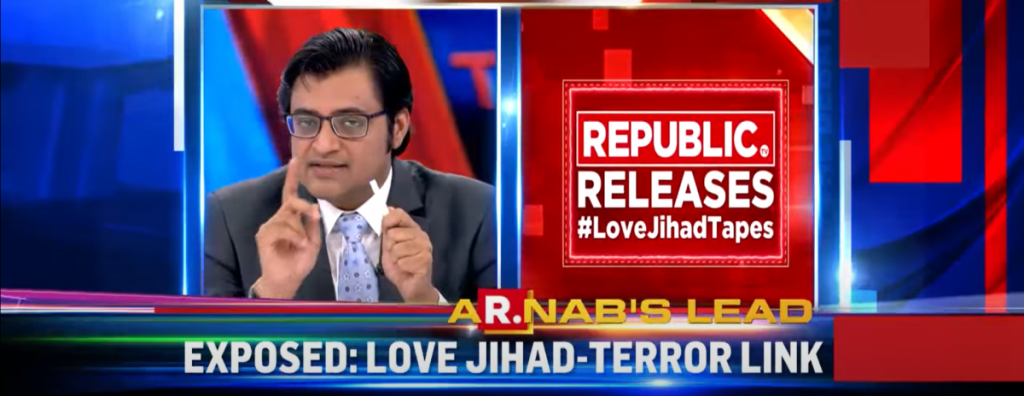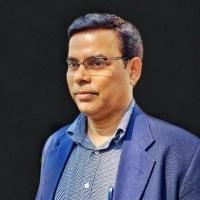
The media is considered to be democracy’s fourth pillar. The role the media has played in strengthening democracies cannot be underestimated. It has been the most powerful weapon against dictators and reactionary forces in the hands of unarmed masses. The best spirit of journalism can be summarised in Faiz’s famous lines: ham parwarishe lauho Qalam karte rahenge, jo dil pe guzarti hai raqam karte rahenge (We will continue to nourish the pen and the tablet; we will tend them never, we will keep writing what the heart suffers; we will defend them ever). History shows that the fearless journalists, poets and writers preferred to kiss the noose of the gallows over compromising the truth.
However, it cannot be denied that in our time, the corporatisation of the media has seriously threatened democracy, peace and harmony. It is more evident than ever today in the largest electoral democracy of ours.
The primetime debates on TV news channels (with a few notable exceptions) in India construct a particular kind of narrative targeting Muslims every day. Creating fault lines and generating emotional lava based on hate has become the order of the day. A highly emotive topic (often a non-issue) is selected for primetime debate, and news anchors of these channels shout and make the invited guests shout at each other. Angry faces of brainwashed audiences appear on the screen, denouncing, condemning and threatening the perceived wrongdoers.
Anti-Muslim narrative
Primetime TV debates are used to peddle hatred against Muslims. The anchors, who have mastered the art of generating hatred and anger, become celebrities in the eyes of right-wing forces.
Every day, India witnesses its communities displaying love, sympathy and compassion towards each other. At the same time, inter-communal and inter-caste conflicts also take place. The TV channels thriving on hate stories pick up incidents of conflicts and crimes involving Muslims and use them to demonise the entire community. Even inter-religious marriages motivated by selflessness and true love are projected as ‘love jihad’, and a motive is attached to them. Such narratives make the lives of interfaith couples highly vulnerable.

A Republic TV broadcast on love jihad. Photo:YouTube/Republic World
Glorifying extrajudicial killings
Every space is being communalised. TV anchors and carefully-picked panellists selectively highlight the crimes of Muslim gangsters, portraying them as the underworld’s supari killers. From Atiq and his entire family to Mukhtar Ansari and his associates, the pattern of reporting and discussions on mainstream TV channels can be easily deconstructed.
The bulldozing of Muslim homes in Uttar Pradesh and Madhya Pradesh is not reported, but celebrated, by the experts in spreading hatred (read TV anchors and motivated panellists). The misuse of the state’s organised power against helpless minorities is projected as the bravery and courage of the political leaders spearheading the destruction. This predatory journalism, which is comparable with Radio Rwanda, indeed increases the vulnerabilities of Muslims in the prevailing Islamophobic environment.
Watch | From Umar Khalid to Sudarshan TV, News Channels Resemble Radio Rwanda
Media trials
The primetime debates often ignore the universally accepted principle of natural justice that a person is to be assumed innocent unless proven otherwise. In our country, these loud-mouthed TV anchors have assumed both the power of prosecution and adjudication. They do not report on cases, but try an accused or suspect and pronounce judgment. They try to construct a national conscience based on hatred against a community. They create an environment under which encounters and extrajudicial killings are justified and glorified.
The killing of Atiq and Ashraf in police custody are the product of this environment created by the biased media. We should remember that militancy by the pen is more dangerous than militancy by guns. Journalists in a vibrant democracy are not expected to behave like contract killers.
Social composition is not reflected in the media
Perhaps the media is a space where Scheduled Castes, Scheduled Tribes, Other Backward Classes and minorities are most underrepresented. This is why the real issues relating to the masses like poverty, unemployment, privatisation, corruption and collective violence hardly find a place in the primetime debates. Communal and casteist biases in the media are an open secret.
The media does not reflect society’s realities, but the narrative it constructs and the way in which it pollutes people’s minds often create perilous consequences. This kind of biased, communal, casteist and corporatised journalism cannot be the fourth pillar of democracy. Contrarily, it poses the greatest danger to democracy today.
Meanwhile, India’s sharp decline in the 2023 Press Freedom Ranking Report, compiled by Reporters Without Borders, must be a matter of concern for all citizens of this country.
The report ranked India 161st out of 180 countries.
The author is Professor of Political Science at Aligarh Muslim University.






